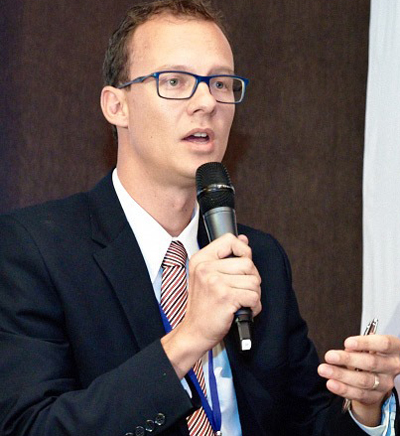
Back to school logistics…you know it makes sense

By Logan Fransman.
Director: Namibian German Centre for Logistics.
Christmas has come and gone. Children are home for the holidays, but already the parents are being bombarded with demands for new “back-to-school stuff”; shirts, blazers, dresses and sports kits. These can all be bought through the school, but are usually outrageously priced.
Whilst shopping in Ackermanns, Jet, Mr. Price or even in any of the supermarkets you will see bargains, “T-shirts” suitable for gym use are only N$ 20, or trousers and shoes modestly prices in comparison to the ‘official’ school uniform prices.– salvation is at hand! But, how can these be so cheap?
At least part of the answer lies in the use of extremely effective and efficient “Global Supply Chains”. When Marshall McLuhan coined the term a “Global Village” in 1967, most people saw it as over-exaggeration and wishful thinking. Now, modern technology in transport and communication has made it a reality.
Right here in Namibia we have products from far off exotic places and often at a cost that boggles the mind. The advances in logistics and transportation have enabled products or components to be sourced from anywhere in the world quickly and at very low cost and bring them right here to the Land of the Brave.
These extended supply chains enable us to “enjoy” a wide variety of low cost goods ranging from exotic fruits, flowers and salad right through to clothing / toys via electrical goods to cars. The cotton for “T-shirts” is probably grown in the USA, shipped to China to be made up into garments and sent to Southern Africa, where retail chains are still able to make profit.
These are a very small sample of the many good things made possible by the global supply chains. The benefits claimed include; variety & choice, all-year availability, cost savings, growth of the world economy, development of nations, and raising living standards.
The transport and logistics behind the products and goods ending up in the shops right here in Windhoek, Oshakati, Rundu or Swakopmund is never really thought about. But, the governments of the producing countries and those that handle the goods along the way reap benefits in terms of trade, employment and profit.
The government has realized this and they understand that to grow Namibia and to reach the goals we have set ourselves as a nation, we need Logistics. Logistics is so much more than getting that competitively priced ‘School T-shirt’. It is about driving business that can allow Namibia to develop as an economic force and perhaps provide a trading gateway he rest of southern Africa at the same time.
Next time you buy that bargain think of the journey it has made as well as the people that it has touched and think of the economic and development opportunity that Namibia has thanks to the ‘global village’, back to school bargains and logistics.












































